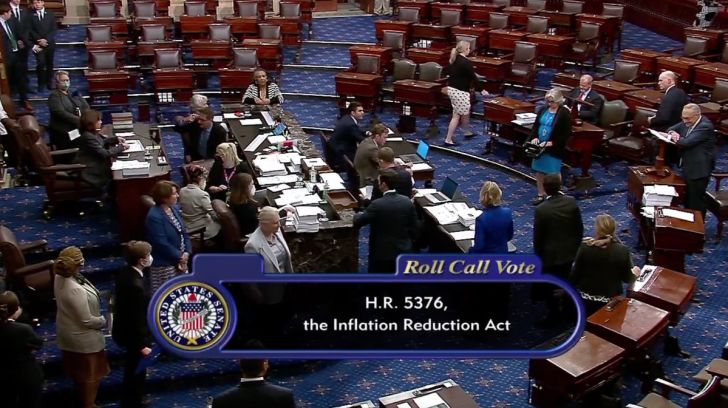Good Morning Everyone,
I want to spend this morning talking about bonds, which are certainly not something i’m not an expert in. Lets begin at the beginning - According to Investopedia:
“A bond is a debt or promise to pay investors interest payments along with the return of invested principal in exchange for buying the bond.”
Essentially governments issue bonds as a mechanism to raise capital and to support spending and obligations. In exchange they return an interest payment, commonly referred to as a coupon. They are traditionally considered low-risk because the government backs them. This has been true specifically for US Treasury Bills given the US Dollar reserve status, and the dominance of the US as a global power.
This varies however depending on their ratings, which are applied by a handful of rating agencies. Traditional portfolio construction was based upon the classic 60/40 split. 60% stocks. 40% bonds. The idea here that 40% of the portfolio was very low risk and would provide a small yield and limit overall portfolio risk while the other portion would seek slightly higher risk/return opportunities. In a historically low interest rate environment, like the one we’re in, this traditional allocation is challenged and essentially means people buying bonds are loosing value in ‘real’ terms meaning when adjusted for inflation.
I think the entire notion of a bond is really interesting. While predominantly they’re viewed as a means of earning low-risk yield, it’s not exactly clear what they’re actually backed by. I guess you could say they’re backed by the trust, simply that they will be repaid. They’re also some what of an endorsement of a government when you consider it as simply capital raising. If you believe in a company and their mission you may wish to support them in achieving their goals. While this may not be the lens in which most purchase bonds, it’s difficult to ignore this reality.
Back in November of 2021, El Salvador President Nayib Bukele announced his plan to launch Bitcoin-backed bonds often referred to as Volcano bonds due to their plans to mine bitcoin from the geothermal energy provided by many volcanoes in the region. I wrote a little about this back in the beginning of the year which may provide some more colour.
The bitcoin bond is an entirely new mechanism for nation state capital raising and one that has some extremely interesting characteristics worth exploring. Typically for smaller nations, their government bonds tend to receive lower ratings, and thus attract less investment capital. This often leads them to have no choice but to accept the predatory loans from the IMF. El Salvador’s Volcano bond could dramatically change this dynamic and give smaller nations a potential way to get out from under the heel of the IMF.
It’s essentially a mechanism to crowd-fund outside of the traditional method of borrowing from the IMF where there were previously little other alternatives. Instead of the purchaser needing to trust in the fact the government debt will maintain some arbitrary value, and they will remain solvent and be paid back, they have the backing of bitcoin instead which makes it somewhat of a more trustless and verifiable transaction - if you believe in the long term vision of bitcoin.
The capital raised from the initial $1b bond, will support a $500m infrastructure spend including but not limited to the development of a new city, they’re calling ‘Bitcoin City’ and the mining infrastructure to access the geothermal energy and convert this into electricity as well as a $500m purchase of bitcoin.
The specifics are outlined in the image below with the headlines being:
$1b of notional value
10Y Duration (Maturation: 2032)
6.5% coupon
5yr lockup on bitcoin allocation
Investments of >$100,000 will quality investors for citizenship
Since announcing this plan, El Salvador have come under fire from the IMF who have tried to warn them away from doing this and attempted to discredit the country and Bukele’s decision making. Rating agency, Moodys, also lowered the rating of the countries debt sighting “deterioration in the quality of policymaking” and the decision to adopt bitcoin as legal tender “as a sign of weak governance”.
Obviously the IMF like any bank etc, wants to keep customers, it wants to keep people in debt. In this case countries are the customer, but the basic premise here is no different. So it’s no surprise they have been fairly hostile to the actions Bukele is taking.
There is a really major element to this that i think is being completely overlooked.
The bitcoin (volcano) bond, is an energy backed bond.
It is so powerful, because at the same time as raising this capital, it supports the country in working to achieve energy independence. Perhaps a few months ago if i highlighted how big a deal this was, it may not have hit home with people - but now given the situation with Russia and the energy implications it is exposing globally, this is an absolutely profound feature of the bond.
Not only this, 50% of the investment is directly backed by the hardest asset on the planet which is directly backed by energy at the core of the protocol via proof-of-work.
I honestly believe after giving it a little more thought that this bond is going to be wildly successful and is going to pave the way for many others. Similar small nations will be watching closely how this is received, and if the response is positive we should be prepared for the potential for it to usher in a brand new wave of nation state level crowd-funding.
This is an incredible precedent to be setting, and has the potential to completely change the global dynamic over time, while at the same time providing energy independence for the citizens of the country. I cannot imagine a more significant sales pitch given the global energy dynamic we currently find ourselves in, not to mention the fact that it is 50% backed by true digital scarcity.
Hope you have a great day. I’ll talk to you tomorrow.
AK















Share this post